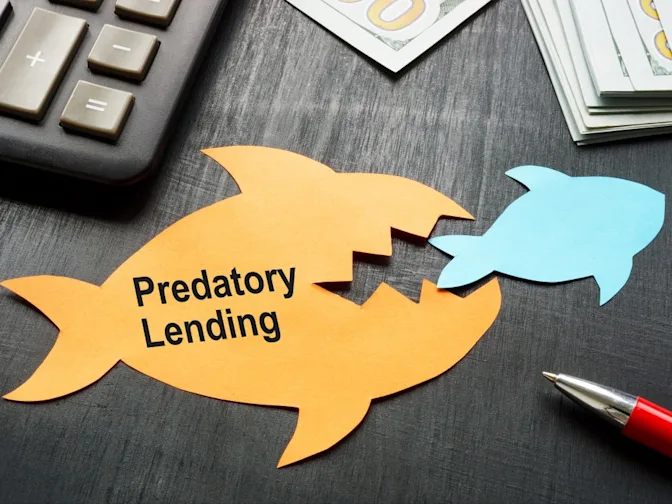
What You Need to Know About Loan Sharks
Loan sharks offer fast cash to those in need but come with sky-high interest rates and dangerous consequences. Despite their tempting offers, dealing with these lenders can quickly spiral into a nightmare. What exactly are loan sharks, and why should you avoid them?
What Is Loan Sharking?
Loan sharking involves providing unsecured loans at illegally high interest rates. Unlike banks, which are regulated by laws, loan sharks operate outside the legal financial system. They often target individuals who can't get a loan from a bank due to poor credit or financial instability. These loans may seem like a quick fix for people in desperate situations, but the consequences can be severe.

The key characteristic of a loan shark is the use of extreme interest rates, sometimes doubling the amount owed within a month. But the high interest isn't the only threat. If borrowers fail to repay on time, loan sharks are known for using threats or actual violence to collect their debts.
The Dangerous Tactics of Loan Sharks
While traditional banks rely on legal procedures to reclaim unpaid loans, loan sharks often resort to intimidation and physical violence. Borrowers may be threatened, harassed, or even attacked if they can't pay back the loan as scheduled. In some cases, loan sharks seize personal property as repayment, using force if necessary. This aggressive behavior sets them apart from legal lenders and payday loan services, which generally follow lawful collection practices.

Loan sharks primarily target low-income individuals who are living paycheck to paycheck. These borrowers, often desperate for quick cash to cover necessities like rent or food, can find themselves trapped in a cycle of debt. The high interest rates mean they are constantly paying off the loan but never making a dent in the principal.
Where Are Loan Sharks?
While loan sharks typically prey on vulnerable people in financially unstable communities, some operate in more affluent circles. For example, organized crime rings involved in loan sharking often deal with wealthier borrowers who need large sums for gambling or business investments. The loans here may involve much higher stakes, with severe consequences — sometimes even death — for failing to repay.
Alternatives to Loan Sharks
If you're in need of fast cash, legal alternatives exist. Payday lenders, for example, operate under state regulations, although they still charge high-interest rates. In extreme cases, payday loans can reach interest rates of up to 400%, but they are still subject to legal oversight. These lenders also do not use violence to collect their debts, instead relying on standard legal measures like reporting missed payments to credit bureaus.

There are also alternative lending services offering loans with lower interest rates, even to individuals with poor credit. Personal loans from banks, borrowing from family or friends, and even credit unions can provide safer options than turning to a loan shark.
Loan sharking is illegal for a reason. The exorbitant interest rates and threats of violence make it a dangerous solution to financial woes. Borrowing from a loan shark might seem like a quick fix, but it almost always leads to worse problems. Before you consider a loan from one of these predatory lenders, weigh your options carefully and explore safer alternatives.
References: Loan Shark: Definition, Example, Vs. Payday Lender | Overview of Loan Sharkin























